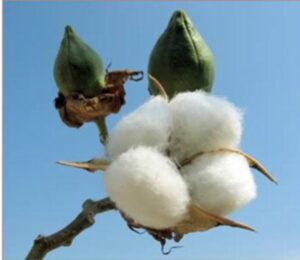Process Making Organic Cotton
What is Organic ?
Organic is a method of production and not characteristics of the food or produce. Organic farming is cultivation of plants without synthetic pesticides, herbicides or fertilizers.Organic farming differs from conventional farming in both its methods and more importantly in its effects. Organic farming is highly labour and knowledge-intensive whereas conventional farming is capital-intensive, requiring more energy resources and manufactured inputs.
In fact before World War two, organic farming was the only option for farmers and since the 1980’s farmers have been returning to organic farming but this time with a more systematic approach. Studies so far have shown that organic farming requires less water, uses fewer and always natural pesticides which are less harmful to humans and the ecosystem.
Organic agriculture has other important environmental benefits. By not using synthetic fertilizers and pesticides, organic agriculture reduces the pollution of groundwater, prevents soil erosion and promotes biodiversity. It also helps to minimize the greenhouse effect and global warming through its ability to trap carbon in the soil. Organic farming also ensures higher standards for the treatment of animals. Today there are about 560,000 organic farms producing various crops, in nearly 108 countries.
Cotton, being the most popular and the best selling fabric in the world, is grown in over 90 million acres in more than 80 countries worldwide! Unfortunately, cotton farming accounts for approximately 25% of the world’s insecticide usage and 10% of pesticide which contribute heavily to the growing environmental issues. Organic cotton production however uses ecologically and socially sustainable methods that are also economically viable. Organic farming helps small and poor farmers in countries like India since it offers economic benefits in terms of yields, costs benefits and employment.
To be certified organic, the process is strictly managed and supervised. The farmer must have his farm and equipment inspected by an independent agency to verify that it meets the required standards and complies by the rules regarding organic cotton farming. The farm should be deemed pesticide and insecticide free for 3 years before organic crops can be planted. Agency provides the farm and the company with a certificate proving that the produce is “certified organic.”
Of all organic fibers, organic cotton is one of the most popular amongst environmentally conscious people who want to do their share in protecting this precious planet that we live in. Buy organic!
What is the difference betwe en Organic Cotton and Natural Cotton?
en Organic Cotton and Natural Cotton?
Many People assume Natural cotton is environmental friendly cotton or Orgnaic cotton. But Natural cotton is not Organic cotton. When you see cotton products labelled as “natural”, you are getting conventional cotton grown with large inputs of chemicals, pesticides, and herbicides to control weed growth. The only difference between natural and conventional cotton is in the processing i.e. natural product is not supposed to be treated with formaldehyde or chlorine bleach. There are no inspection guidelines to ensure processing of green/ natural cotton is chemical-free.
By contrast Organic Cotton comes with certification and by being grown on land that is chemical free for at least three years, and meet stringent requirements for operations prohibiting use of chemicals, pesticides, herbicides; and adhere to organic standards that nurture the soil and animals.
